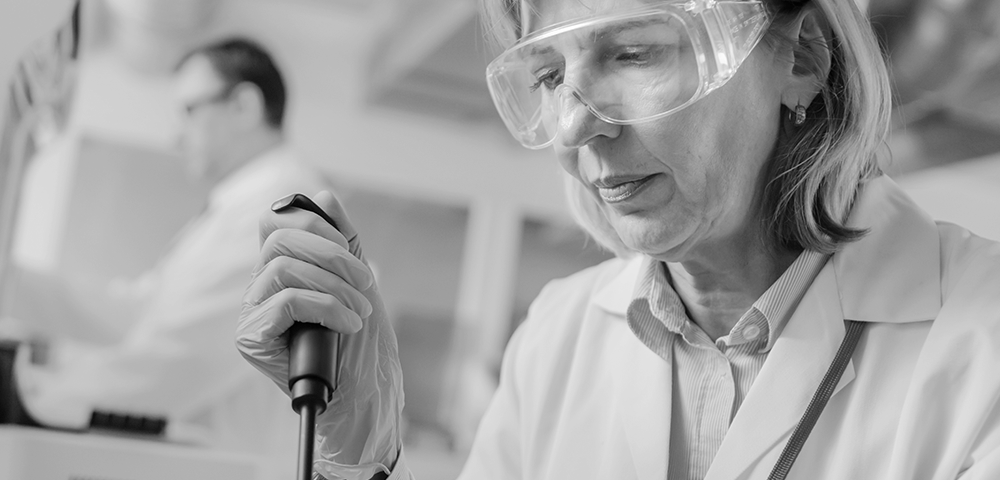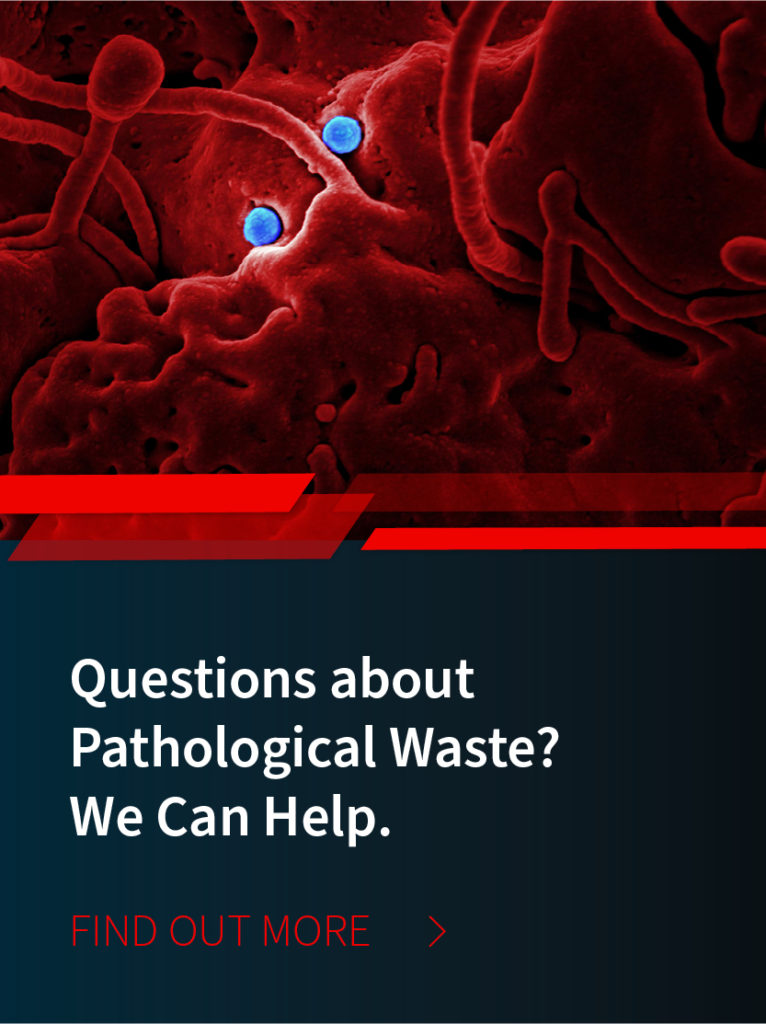
/ IN THIS BLOG
If you operate or work in a pathology lab, you likely know that the facility generates hazardous waste and biohazard waste that needs to be properly and legally disposed of. Generating this type of waste, however, means you're subject to a lot of different rules and regulations for how to safely remove it from your facility for treatment.
Because this can quickly become overwhelming due to a plethora of federal, state, and university guidelines, we have provided a few important issues that your pathology lab needs to be aware of in order to stay fully compliant.
01 / Do Pathology Labs Need to Properly Dispose of Biohazardous Waste?
Any lab that produces pathological or biological waste also has the potential to produce hazardous waste that fall under the same umbrella. A pathological waste is defined as anything that comes from a human or animal. All pathological wastes have the potential to also be infectious or otherwise dangerous to the safety of humans or the environment, so they are deemed biohazardous. A biohazardous waste is any part of a human or animal body, including blood or other bodily fluid that has the potential to contaminate with viral, fungal, or bacterial toxins or other potentially infectious materials (OPIM).
In the terminology used by many states, the words infectious, biohazardous or hazardous imply the same thing – that the waste is to be considered hazardous and treated as such.
So yes, a pathology lab will most certainly generate waste that needs to be properly stored, transported, and disposed of. This includes pathological waste, such as tissues samples. A pathology lab may also produce or use other hazardous materials, such as the flammable solvents involved in the testing process of tissues samples.
All these materials need to be safely, legally, and properly disposed of. Failing to do so can place a lab in serious financial jeopardy, not to mention risks to any person that comes in contact with the improperly disposed waste.
The type and amount of waste your lab generates, of course, depends on the size of the facility and the specific tests that are run there. However, if you generate any of the following waste types, you must follow all biohazardous waste regulations.
02 / Common Waste Types Generated at a Pathology Lab
Every pathology lab is going to offer slightly different services, so there isn't one overall description for the types of waste generated in such labs. That being said, be aware that the following waste types might apply to your facility:
Biohazardous materials that include needles and other sharps such as scalpels, glass slides, pipettes, and so forth
Pathological waste such as tissue samples for biopsies or any human and body parts used for analysis or research
Hazardous waste that includes flammable solvents used in testing procedures or any listed wastes classified by the Environmental Protection Agency (EPA) or those that are identifies by their characteristics (flammable, toxic, reactive, or ignitable)
Lab pack waste - a lab pack is a simple term that describes a drum (typically around 55 pounds) that is filled with various – but usually small – amounts of chemicals that are often used in labs. While these are less commonly found in a pathology lab, it is possible depending on functions.
Once you've accurately ascertained the type (or types) of waste your facility generates, then make sure you know all the rules and regulations surrounding how to properly dispose of them. Those rules encompass not only those of the federal government, but your state as well. Most states also provide guidelines for pathological waste management in their Code of Regulations or Administrative Codes.
It is recommended that any pathology lab work with an experienced waste management company that is familiar and capable of handling pathological, biohazardous, or other types of hazardous waste to ensure compliance.
03 / Importance of accurate paperwork!
One of the best ways for a pathology lab to ensure they are fully compliant with disposal laws is by working with a reputable, experienced waste management company. This provides several advantages for pathological or hazardous waste generators.
Ability to rely on the company's knowledge and experience. Use the company's knowledge and experience within the industry to keep you compliant. This enhances general safety and limits your likelihood of being hit with big fines. A knowledgeable company can also identify non-compliant processes. This can be something egregious, such as flushing wastes down the drain, or it can be something more subtle, such as shipping larger organs as biohazardous material rather than pathological waste. When you do that, the generated waste goes to a medical waste autoclave when it's supposed to go to a medical waste incinerator for proper treatment. An experienced company can help you avoid such mistakes.
Scale waste disposal needs as needed over time. Find a company that will be flexible to your needs on a sliding scale. In this way, you can work with the same company over time, one that you already know and trust—even if you have a small shipment one month (a five-gallon pail) or a significantly bigger shipment the next (a fifty-five-gallon drum, for example).
Enjoy maximum convenience and savings with a turnkey operation. A turnkey company can perform all steps of the disposal process, including providing the proper containers, filling out the necessary paperwork, performing the actual pickup, and leaving another container in order to start the process all over again.
When dealing with pathological or biohazardous waste disposal, it's best to partner with a company that owns and operates their own trucks. That way, you're less likely to get hit with often high transportation charges for every biohazard waste pickup.
Fines for non-compliant pathological waste disposal are not only high, but can permanently damage a facility’s reputation. Fines for non-compliance in treatment, storage, or disposal of biological or hazardous waste averages $50,000 per day, per violation. Fines are often doubled for repeat offenders.
Stay compliant. For more information about pathological or biohazardous materials generated in your pathology lab and their safe disposal, contact a representative of MCF Environmental Services today!
Robert Losurdo
President, COO








